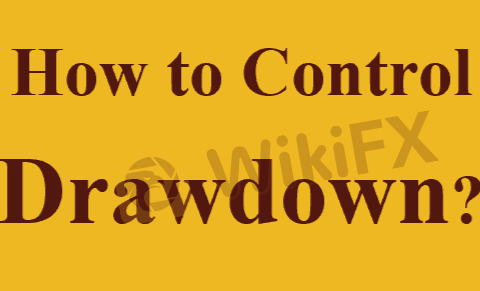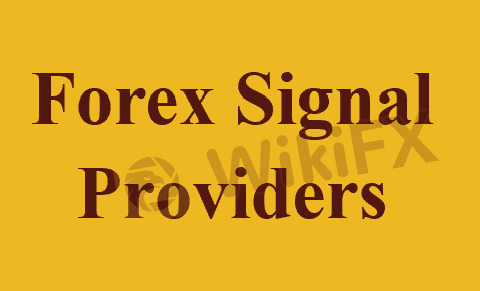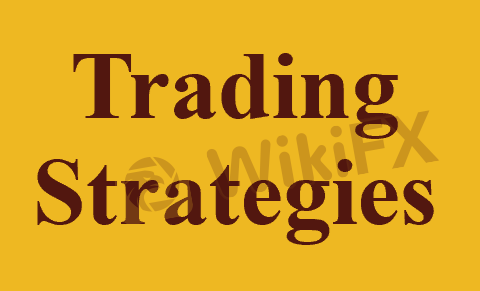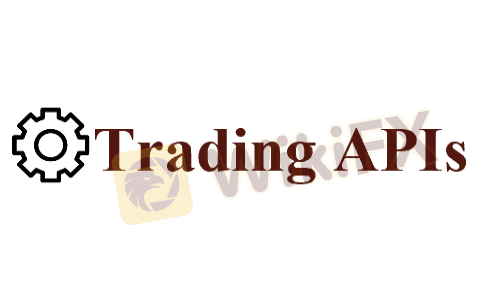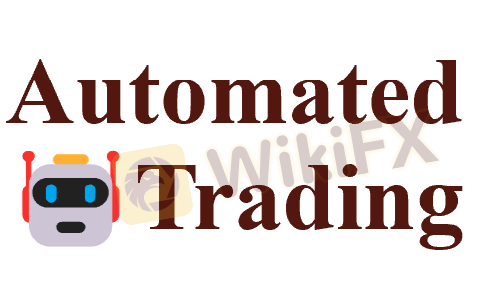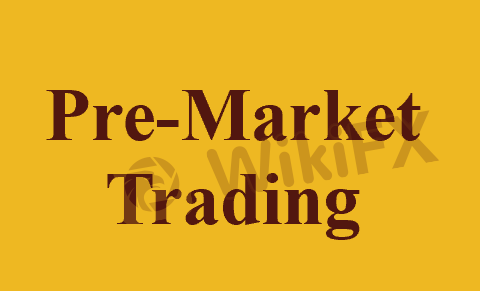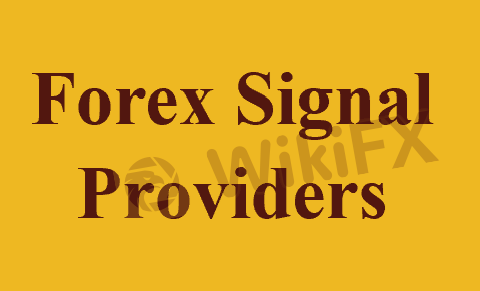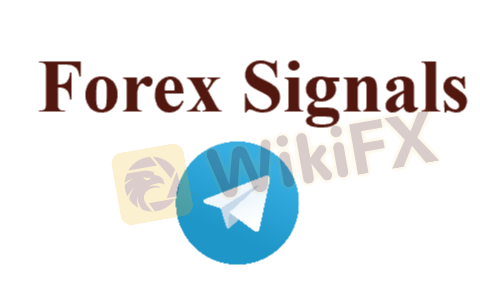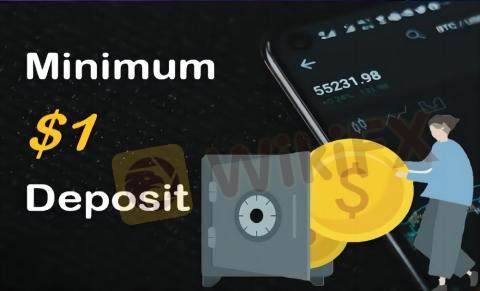Typically, forex brokers charge commissions to their clients for the services they provide. There could be a simple explanation for the forex broker charging extra commissions, such as for providing a platform, education, providing access to human financial advisors, or some other service. Forex traders or investors who are involved in the foreign exchange market may incur quite a lot of financial costs.
What key features make a discount forex broker a good one? Low commissions are definitely one of them. Consequently, it is not surprising that numerous forex brokers strive to maintain their trading commissions low in an effort to attract more forex traders and therefore stand out from a number of competitors.
When it comes to trading CFDs and markets in general, we should not only be concerned with low commission rates. Other factors that must also be taken into account are the trading environment, trade execution speed, technical functionality, trading instruments, deposit and withdrawal options and time, and customer services. Forex commissions are typically divided into three categories: fixed, variable, and percentage. In a fixed commission scheme, commissions are based on the difference between two currencies within a given pair. Variable commissions are also affected by the spreads associated with a particular currency pair. When commissions are calculated as percentages, the broker will use the spread. As this is a small percentage commission, the commission will naturally be lower, and it is determined by the degree of spread. Below is a list of strictly regulated forex brokers that offer low commission rates for your consideration.
Top 10 Best Forex Brokers With Low Commissions
Ultra-Low Spreads: IC Markets offers razor-thin spreads for cost-effective trading.
True ECN Execution: Enjoy lightning-fast order execution with no dealing desk intervention.
Lightning-Fast Execution: Pepperstone ensures lightning-speed order execution.
cTrader Access: Enjoy direct access to the powerful cTrader platform.
Multi-Platform Accessibility - Trade anywhere, any device, seamlessly.
Tailored Educational Resources - Empower traders with personalized learning.
more
Comparison of the Best Forex Brokers With Low Commissions
Forex Broker
License
Minimum Spread
Maximum Leverage
Minimum Deposit
Open account
Details
Compare
Top 10 Brokers with Low Commissions Overall

| Regulated Country | Regulated Authority | Regulated Entity | License Type | License Number |
 |
ASIC | INTERNATIONAL CAPITAL MARKETS PTY. LTD. | Market Making(MM) | 335692 |
 |
CYSEC | IC Markets (EU) Ltd | Market Making(MM) | 362/18 |
Established in 2007, IC Markets is an Australian forex broker. Its large selection of trading items and affordable commisions and spreads have made it a household name.
Commission Type: ECN
Commisisons Charged:0.0 pips + $6 per 100,000 traded

| Regulated Country | Regulated Authority | Regulated Entity | License Type | License Number |
 |
ASIC | PEPPERSTONE GROUP LIMITED | Market Making(MM) | 414530 |
 |
CYSEC | Pepperstone EU Limited | Market Making(MM) | 388/20 |
 |
FCA | Pepperstone Limited | Straight Through Processing(STP) | 684312 |
 |
SCB | Pepperstone Markets Limited | Retail Forex License | SIA-F217 |
Pepperstone was established in 2010 and is yet another Australian forex broker. Its user-friendliness and modest spreads and commisions are other reasons for its popularity.
Commission Type: ECN
Commisisons Charged:0.0 pips + $7 per 100,000 traded

| Regulated Country | Regulated Authority | Regulated Entity | License Type | License Number |
 |
ASIC | TRADING POINT OF FINANCIAL INSTRUMENTS PTY LTD | Market Making(MM) | 443670 |
 |
CYSEC | Trading Point Of Financial Instruments Ltd | Market Making(MM) | 120/10 |
 |
FSC | XM GLOBAL LIMITED | Retail Forex License | 000261/397 |
 |
DFSA | Trading Point MENA Limited | Retail Forex License | F003484 |
XM was established in 2009 and is based in Cyprus. The variety of account options and trading education materials it provides have made it a household name.
Commission Type: ECN
Commisisons Charged:0.0 pips + $3.50 per 100,000 traded

| Regulated Country | Regulated Authority | Regulated Entity | License Type | License Number |
 |
FCA | Exness (UK) Ltd | Market Making(MM) | 730729a |
 |
CYSEC | Exness (Cy) Ltd | Market Making(MM) | 178/12 |
 |
FSCA | EXNESS ZA (PTY) LTD | Retail Forex License | 51024 |
 |
FSA | Exness (SC) Ltd | Retail Forex License | SD025 |
Exness, founded in 2008, is headquartered in Cyprus, registered as Exness (Cy) Ltd, and boasts a strong track recor, offering tight spreads, rapid execution, and a user-friendly platform for seamless trading experiences.
Commission Type: ECN
Commisisons Charged:0.0 pips + $3.50 per 100,000 traded

| Regulated Country | Regulated Authority | Regulated Entity | License Type | License Number |
 |
FCA | Tickmill UK LTD | Market Making(MM) | 717270 |
 |
CYSEC | Tickmill Europe Ltd | Market Making(MM) | 278/15 |
 |
FSCA | TICKMILL SOUTH AFRICA (PTY) LTD | Retail Forex License | 49464 |
 |
LFSA | Tickmill Asia Ltd | Straight Through Processing(STP) | MB/18/0028 |
Tickmill, founded in 2014 in the United Kingdom, provides competitive spreads, high leverage, and a user-friendly trading platform, making it a popular choice among Forex and CFD traders.
Commission Type: ECN
Commisisons Charged: 0.0 pips + $2.50 per 100,000 traded

| Regulated Country | Regulated Authority | Regulated Entity | License Type | License Number |
 |
ASIC | OANDA AUSTRALIA PTY LTD | Market Making(MM) | 412981 |
 |
FCA | OANDA Europe Limited | Market Making(MM) | 542574 |
 |
FSA | OANDA Japan Inc | Retail Forex License | 関東財務局長(金商)第2137号 |
 |
NFA | OANDA CORPORATION | Market Making(MM) | 0325821 |
 |
IIROC | OANDA (Canada) Corporation ULC | Market Making(MM) | Unreleased |
 |
MAS | OANDA ASIA PACIFIC PTE. LTD. | Retail Forex License | Unreleased |
OANDA, founded in 1996 in the United States, is a globally trusted broker, celebrated for its transparent forex trading. Renowned for transparent pricing, diverse market access, and exceptional forex analytics, a trusted choice for global traders.
Commission Type: Mark-up
Commisisons Charged:Varies depending on the currency pair and trade size

| Regulated Country | Regulated Authority | Regulated Entity | License Type | License Number |
 |
CYSEC | FXPRO Financial Services Ltd | Market Making(MM) | 078/07 |
 |
FCA | FXPRO UK Limited | Straight Through Processing(STP) | 509956 |
FxPro, established in 2006, is a UK-based broker renowned for its cutting-edge technology, diverse asset selection, and superior trading conditions, making it a top choice for global traders.
Commission Type: Mark-up
Commisisons Charged:Varies depending on the currency pair and trade size

| Regulated Country | Regulated Authority | Regulated Entity | License Type | License Number |
 |
CYSEC | Forextime Ltd | Market Making(MM) | 185/12 |
 |
FCA | Exinity UK Ltd | Straight Through Processing(STP) | 777911 |
 |
FSC | EXINITY LIMITED | Retail Forex License | C113012295 |
FXTM, founded in 2011 and registered in Cyprus, stands out for its extensive education, diversified asset offerings, and exceptional customer support, making it a top choice for traders worldwide.
Commission Type: Mark-up
Commisisons Charged:Varies depending on the currency pair and trade size

| Regulated Country | Regulated Authority | Regulated Entity | License Type | License Number |
 |
CYSEC | Tradestone Limited | Market Making(MM) | 331/17 |
 |
FSC | Retail Forex License | Retail Forex License | IFSC/60/230/TS/17 |
FBS, founded in 2009 and headquartered in Belize, is renowned for its user-friendly interface, diverse account types, and zero-commission trading, making it a favored choice for traders worldwide.
Commission Type: ECN
Commisisons Charged:0.0 pips + $6 per 100,000 traded

| Regulated Country | Regulated Authority | Regulated Entity | License Type | License Number |
 |
CYSEC | HF Markets (Europe) Ltd | Market Making(MM) | 183/12 |
 |
FCA | HF Markets (UK) Limited | Straight Through Processing(STP) | 801701 |
 |
DFSA | HF Markets (DIFC) Limited | Retail Forex License | F004885 |
 |
FSA | HF Markets (Seychelles) Ltd | Retail Forex License | SD015 |
 |
CNMV | HF MARKETS (EUROPE) LTD | Retail Forex License | 3427 |
HF Markets, formerly Hotforex, is a globally renowned broker founded in 2010, offering low spreads, diverse assets, and robust trading features. Registered in Cyprus, it's a top choice for traders.
Commission Type: ECN
Commisisons Charged: 0.0 pips + $6 per 100,000 traded
Forex Trading Knowledge Questions and Answers
What Is Forex Commission?
Forex commission refers to a fee or charge imposed by a broker or financial institution for facilitating a forex trade. It's a cost that traders pay for the services provided by the broker when executing their trades in the foreign exchange market. This fee can be calculated in different ways, such as a fixed amount per trade or as a percentage of the trade's notional value. It's important for traders to be aware of the commission structure of their chosen broker, as it directly affects the overall cost of their trading activities.

What Are Types of Forex Commissions?
Brokers in the forex market charge different types of fees, known as commissions. These fees can vary from one broker to another, so it's essential for traders to think about these costs when picking a broker. Here are the most common commission types:
Spread Commission:This is the most prevalent type of commission in forex trading. It's the difference between the bid (selling) and ask (buying) prices of a currency pair. Brokers make money by offering traders a slightly wider spread than what they get from the interbank market. This is often expressed in pips (percentage in point), and the broker keeps the difference between the bid and ask prices as their commission.
Fixed Commission:Some brokers charge a fixed fee for each trade, regardless of the trade size. For example, a broker might charge $10 per trade, regardless of whether you are trading one micro lot or one standard lot. This fee remains constant for all trades and is not affected by the trade's size.
Percentage Commission:In this case, the broker charges a commission as a percentage of the trade's notional value. For instance, they may charge 0.1% of the total trade size. This means that the commission amount increases with larger trade sizes.
Volume-Based Commission:Some brokers offer volume-based commission structures, where the commission rate decreases as the trading volume increases. This is often used to incentivize high-frequency or high-volume traders to trade more.
Account Type-Based Commission:Brokers may offer different types of trading accounts with varying commission structures. Traders can choose an account type that suits their trading style and budget. Account types may include commission-free accounts (with wider spreads) and commission-based accounts (with tighter spreads but a commission fee).
ECN/STP Commissions: In Electronic Communication Network (ECN) or Straight Through Processing (STP) broker models, traders often pay a separate commission fee in addition to the spread. ECN and STP brokers typically offer access to interbank liquidity and charge a transparent, separate commission to cover their costs.

Why Do Some Traders Prefer Commission-based Pricing?
Traders often favor commission-based pricing for its transparency and predictability. With commission-based models, the cost of each trade is clearly defined as a fixed fee or a percentage of the trade's notional value. This level of clarity allows traders to calculate the precise expense associated with each transaction.
For example, let's consider a trader who opens a standard lot (100,000 units) position on EUR/USD with a commission of $5 per lot. Regardless of market conditions, the trader knows that for this specific trade, the commission cost will be $5. This predictability can be particularly advantageous for traders who employ scalping or high-frequency trading strategies, as they often execute numerous trades in a short time frame.
Furthermore, with commission-based pricing, traders are less affected by variable spreads, which can significantly impact the cost of a trade, especially during volatile market conditions or major economic announcements. By decoupling the spread from the commission, traders can more accurately assess their overall trading costs.
In summary, commission-based pricing offers traders a precise and dependable method for evaluating the cost of their trades, enabling more effective risk management and strategic planning. It's particularly favored by traders who prioritize cost transparency and reliability in their trading approach.

Can commission-free brokers be more cost-effective than those with commissions?
Comparing the prices of commission-free vs commission-based brokers is a complex issue. While commission-free brokers don't charge traders any money up front, they may end up costing more in the long run due to the larger spreads they offer.
Let's look at an example to see what I mean:
Take the example of a trader who wants to buy 10,000 Euros with 10,000 US Dollars, or a normal lot trade. For this transaction, a commission-free broker might offer a spread of 1.5 pips. A commission-based broker, on the other hand, would provide a tighter spread of 0.5 pips for a commision cost of $7 per lot.The overall cost for the commission-free broker in this case is 1.5 pips, while it is 0.5 pips plus $7 commision for the commission-based broker.
Traders that engage in high-frequency trading or seek quick, frequent gains may find the commission-based broker more cost-effective than the commission-free broker due to the latter's greater spread and subsequent higher overall cost.The bigger spread of a commission-free broker may have less of an effect on traders using longer-term tactics. Traders' bottom lines are directly affected by the model they use, so it's important that they make an informed decision based on their own goals and trading style. Therefore, it is vital to conduct a comprehensive cost analysis, taking into account both spreads and commisions, to determine which alternative is more cost-effective.
How does the choice between commission-based and spread-based pricing affect trading strategies?
The choice between commission-based and spread-based pricing has a significant impact on trading strategies, often guiding traders toward strategies that align with their preferred pricing model.
Commission-Based Pricing: This model tends to attract traders who engage in frequent, short-term trading strategies such as scalping and high-frequency trading. For instance, a scalper may enter and exit multiple positions in a single day, looking to capture small price movements. With commission-based pricing, the trader pays a predictable fee for each trade, irrespective of the spread's width. This consistency allows scalpers to better assess the costs associated with their high-frequency trading activities, ensuring that transaction costs don't erode their profits.
Spread-Based Pricing:On the other hand, spread-based pricing models may be favored by swing traders or longer-term investors. These traders typically aim to capture more substantial price movements over extended periods. They may not be as sensitive to the short-term fluctuations in spread widths. For example, a swing trader looking to hold positions for several days or weeks may be less concerned about paying a commission for each trade and may appreciate the simplicity of a spread-based pricing structure.
In essence, the choice between these pricing models shapes trading strategies by accommodating the specific needs and objectives of different trader profiles. Traders should consider their preferred trading style and frequency when selecting the most suitable pricing model, as it can significantly impact the cost and overall efficiency of their trading activities.
Are there broker-specific incentives for high-volume traders when it comes to commissions?
Indeed, numerous brokers incentivize high-volume traders with volume-based commission discounts. These discounts are structured to reward traders as they progressively increase their trading activity.
For instance, a broker may have a tiered commission structure. Let's consider a hypothetical scenario with three tiers:
Tier 1: Traders with a monthly trading volume of 0-50 standard lots pay the standard commission rate of $10 per lot.
Tier 2:Traders who exceed 50 standard lots but trade up to 100 lots may receive a reduced commission rate of $8 per lot.
Tier 3:High-volume traders who exceed 100 standard lots could benefit from an even lower rate, say $6 per lot.
To save money on commisions, traders are incentivized to increase their volume of trades by moving up the levels. It's a technique for brokers to keep the customers (who provide the bulk of their income) who trade with them the most.
Traders should investigate and comprehend the unique volume-based commision reductions offered by their selected broker as they can considerably alter the cost-effectiveness of trading as the availability and structure of these incentives might differ from broker to broker.
What role do commissions play in the overall trading cost, and how to manage them?
When it comes to the entire expense of trading forex, commisions play a critical role. Traders need to appreciate the gravity of these expenses and plan properly if they are to be controlled.
Commisions can have a major impact on the success of a trading plan. High-frequency traders and scalpers, who make many small trades quickly, may find that commision fees quickly eat away at their profits. A commision structure with reduced per-trade fees could be more attractive in such circumstances. Commision charges may be a smaller proportion of trading expenditures for swing traders or longer-term investors that focus on capturing larger price fluctuations. Spread-based pricing, even with greater spreads, may be prefered by these traders because the impact is less noticeable over a longer holding period.
Commision costs can be kept in check if the trader selects a commision structure that is well suited to his or her trading style and goals. Other cost components, including as spreads and overnight financing rates, can also affect trading profitability, thus these should be taken into account. Traders may make the best possible decisions for their trading experience by taking a comprehensive look at all of the fees involved.
How to Reduce Commission in Forex Trading?
Reducing commissions in forex trading requires a strategic approach. Here are some ways traders can work to minimize commission costs:
Choose the Right Broker:Compare brokers to find those offering competitive commission structures. Look for volume-based discounts or commission-free options that align with your trading style.
Negotiate with Your Broker: For high-volume or institutional traders, it's worth discussing commission rates with your broker. Negotiation may result in more favorable terms.
Use Technology: Utilize technology to automate trading strategies, reducing the need for manual intervention and frequent trading, which can accrue higher commission costs.
Optimize Trade Size: Adjust trade sizes to be more in line with your strategy. Avoid overtrading, which can increase commission costs.
Utilize Scalping and High-Frequency Trading: If appropriate for your trading style, explore scalping and high-frequency trading strategies to benefit from smaller spreads.
Focus on Lower-Cost Pairs: Trade currency pairs with tighter spreads and potentially lower commissions, such as major pairs like EUR/USD.
Risk Management: Implement effective risk management strategies to minimize losses. Over time, reduced losses can offset commission costs.
Explore Rebate Programs:Some brokers offer rebate programs that can help offset commissions, especially for high-volume traders.
Stay Informed:Be aware of market conditions and potential events that can impact spreads and commissions. Adjust your trading accordingly.
Consider Long-Term Holding: For longer-term traders, reducing trading frequency and holding positions for extended periods can help minimize commission costs.
Is the Commission Obligatory or Optional?
The commission in forex trading can vary depending on the broker and the type of account you have. In most cases, it is optional, meaning you can choose whether or not to pay a commission based on the commission structure offered by your broker. Some brokers offer both commission-based and commission-free (spread-based) account options.
Traders can pick an account type that fits their individual needs and trading techniques. Spreads on commission-based accounts are often tighter than those on commission-free accounts. It's up to the individual trader's trading style and budget to decide between commision and commission-free models. If you want to know whether or not commisions are required in your trading account, you should review the terms and conditions provided by your broker.
you also like
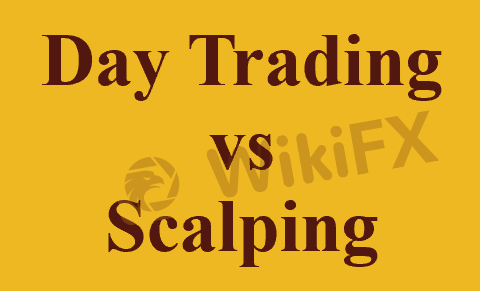
Forex Day Trading VS Forex Scalping: Which One to Choose?
Unravel the clash of Forex day trading and scalping - grasp their tactics, track differences, and tailor your trade.
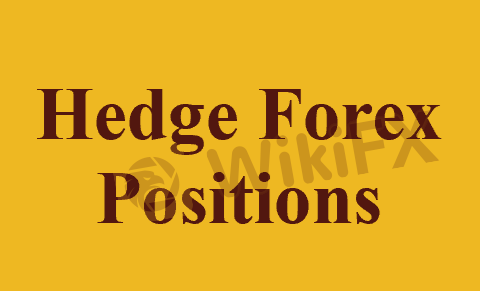
How to Hedge Forex Positions? Some Relevant Strategies to Share.
Dive into Forex hedging strategies - reducing risk, seizing opportunities and securing robust trading profits.
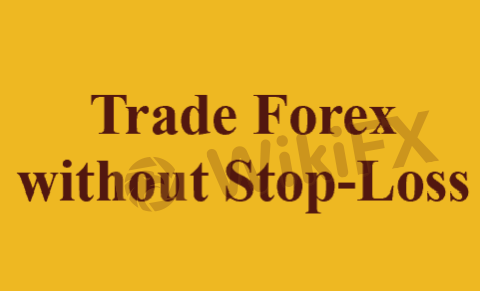
Can I Trade Forex without Stop-Loss? Here Lets’ Discuss
Start Forex trading without stop-loss - understand how it works, explore other options and possible risks.

Forex Market Hours: What is the Best Time to Trade Forex?
Master the clock of Forex trading - optimize profits by knowing the best trading times globally!







